In England the practice of “virtual” representation provided reasonably well for the actual representation of the major interests of the society, and it raised no widespread objection.
BERNARD BAILYNThe categories within which the colonists thought about the social foundations of politics were inheritances from classical antiquity, reshaped by seventeenth century English thought.
More Bernard Bailyn Quotes
-





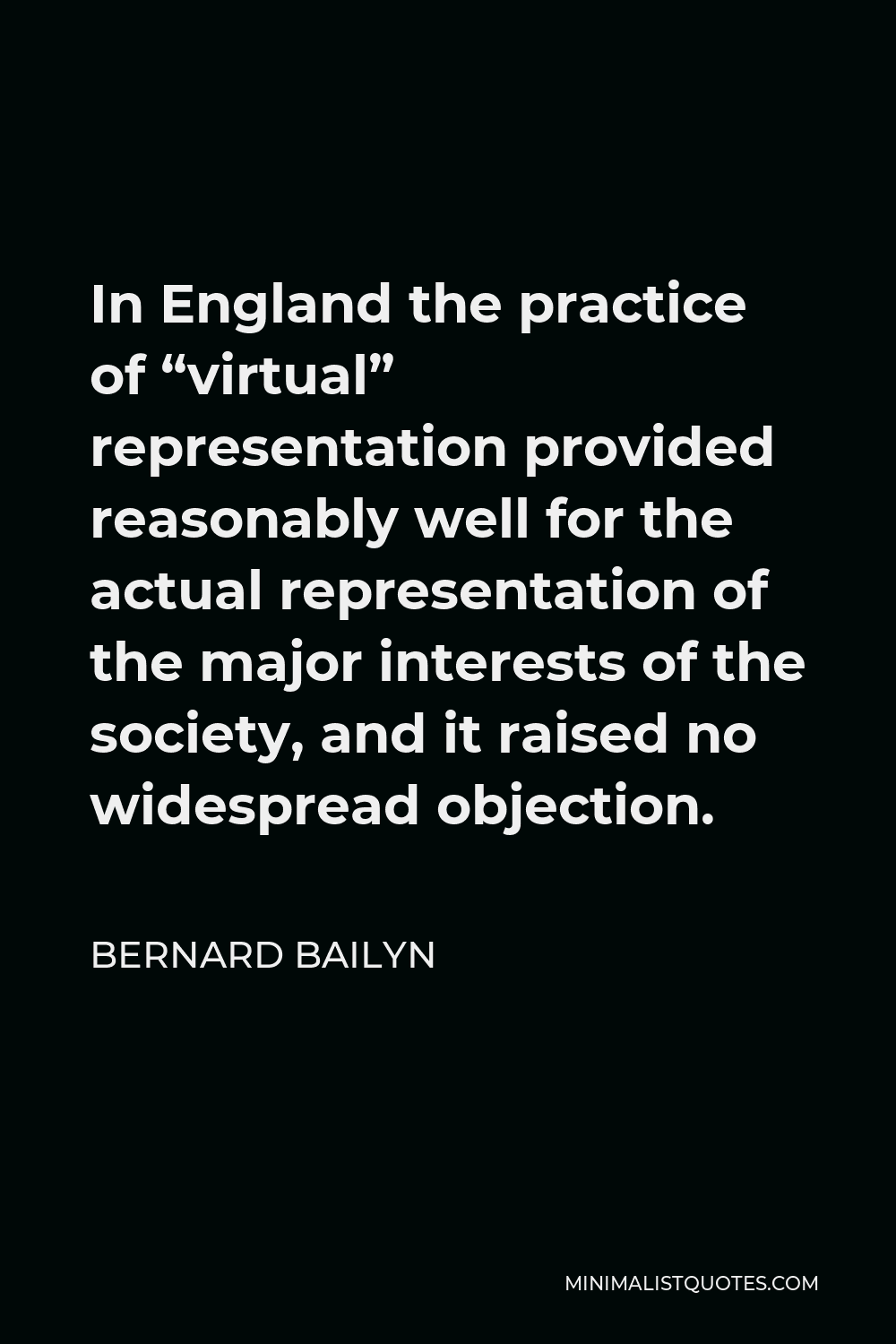
-






The categories within which the colonists thought about the social foundations of politics were inheritances from classical antiquity, reshaped by seventeenth century English thought.
BERNARD BAILYN -






Incorporating in their colorful, slashing, superbly readable pages, the major themes of the “left” opposition under Walpole, these libertarian tracts.
BERNARD BAILYN -





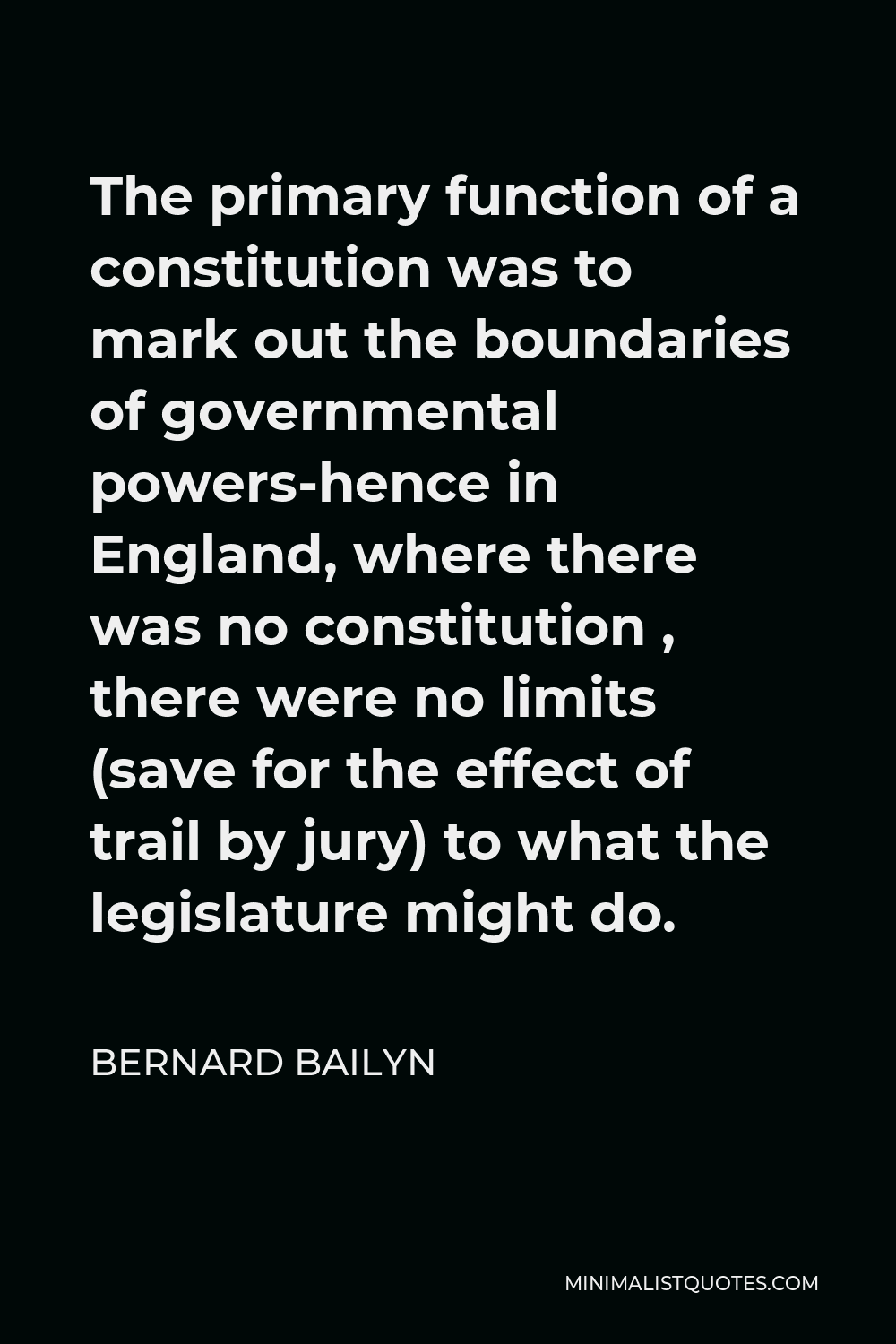
The primary function of a constitution was to mark out the boundaries of governmental powers-hence in England, where there was no constitution , there were no limits (save for the effect of trail by jury) to what the legislature might do.
BERNARD BAILYN -






The idea of sovereignty current in the English speaking world of the 1760’s was scarcely more than a century old. It had first emerged during the English Civil War, in the early 1640’s, and had been established as a canon of Whig political thought in the Revolution of 1688.
BERNARD BAILYN -





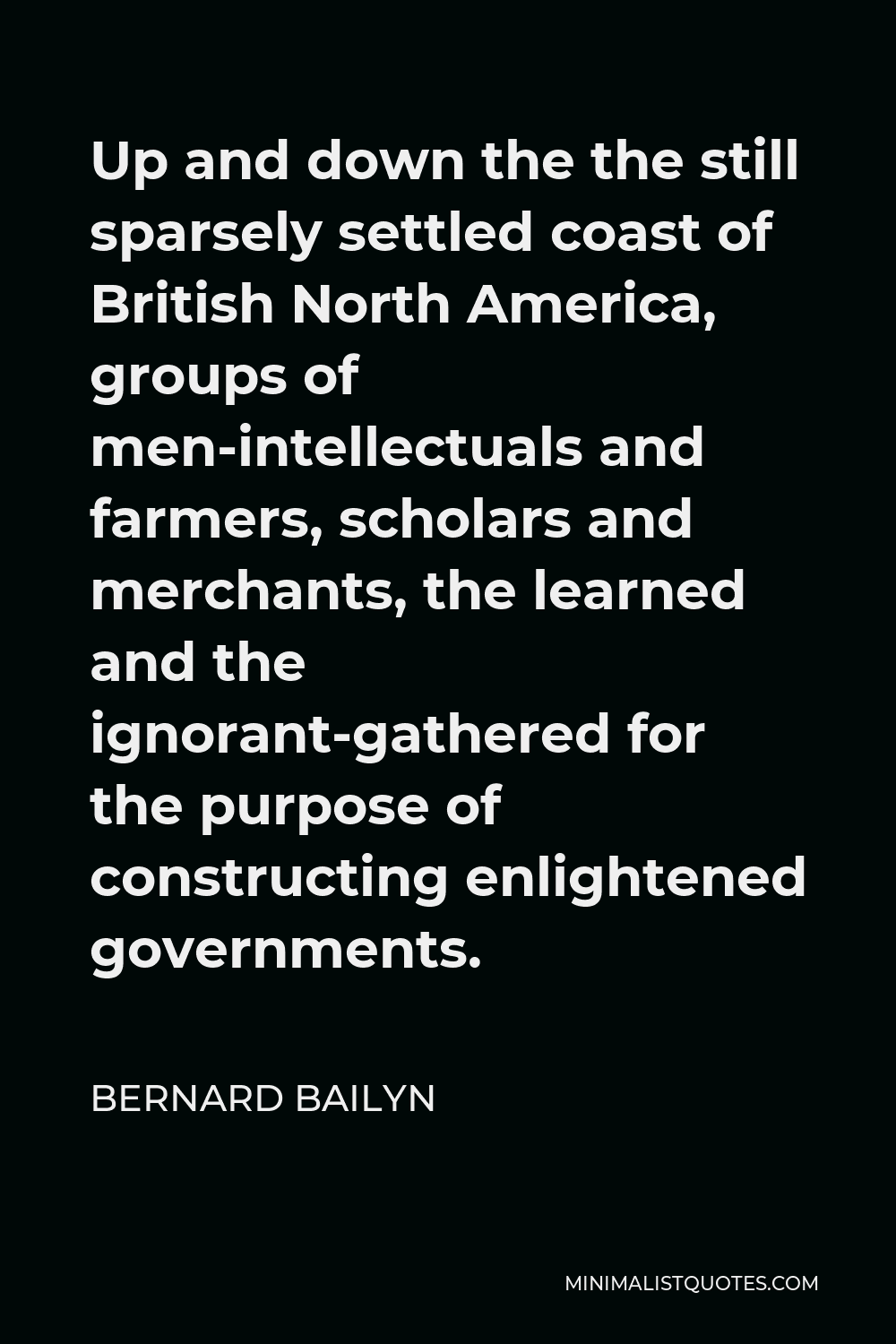
Up and down the the still sparsely settled coast of British North America, groups of men-intellectuals and farmers, scholars and merchants, the learned and the ignorant-gathered for the purpose of constructing enlightened governments.
BERNARD BAILYN -





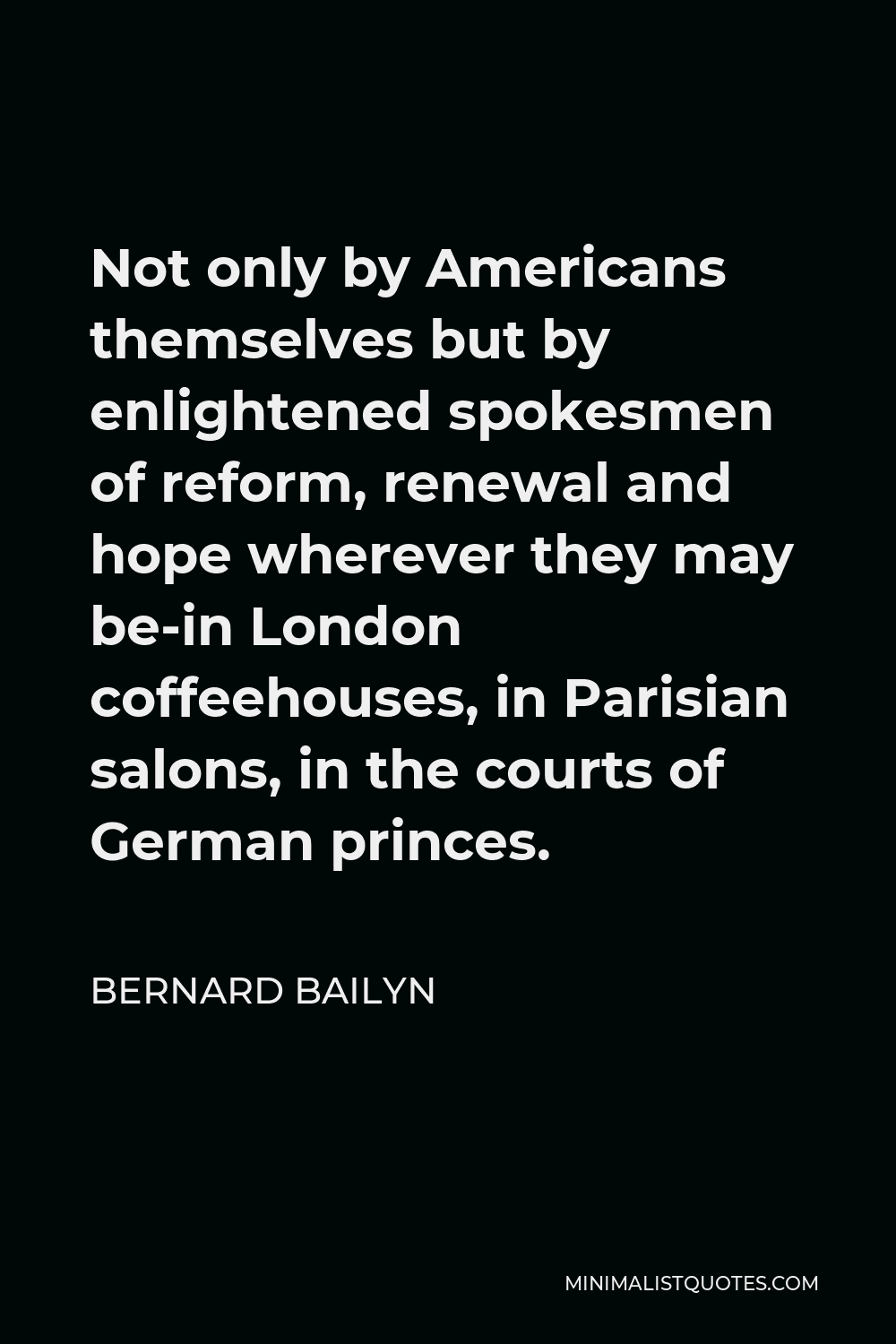
Not only by Americans themselves but by enlightened spokesmen of reform, renewal and hope wherever they may be-in London coffeehouses, in Parisian salons, in the courts of German princes.
BERNARD BAILYN -





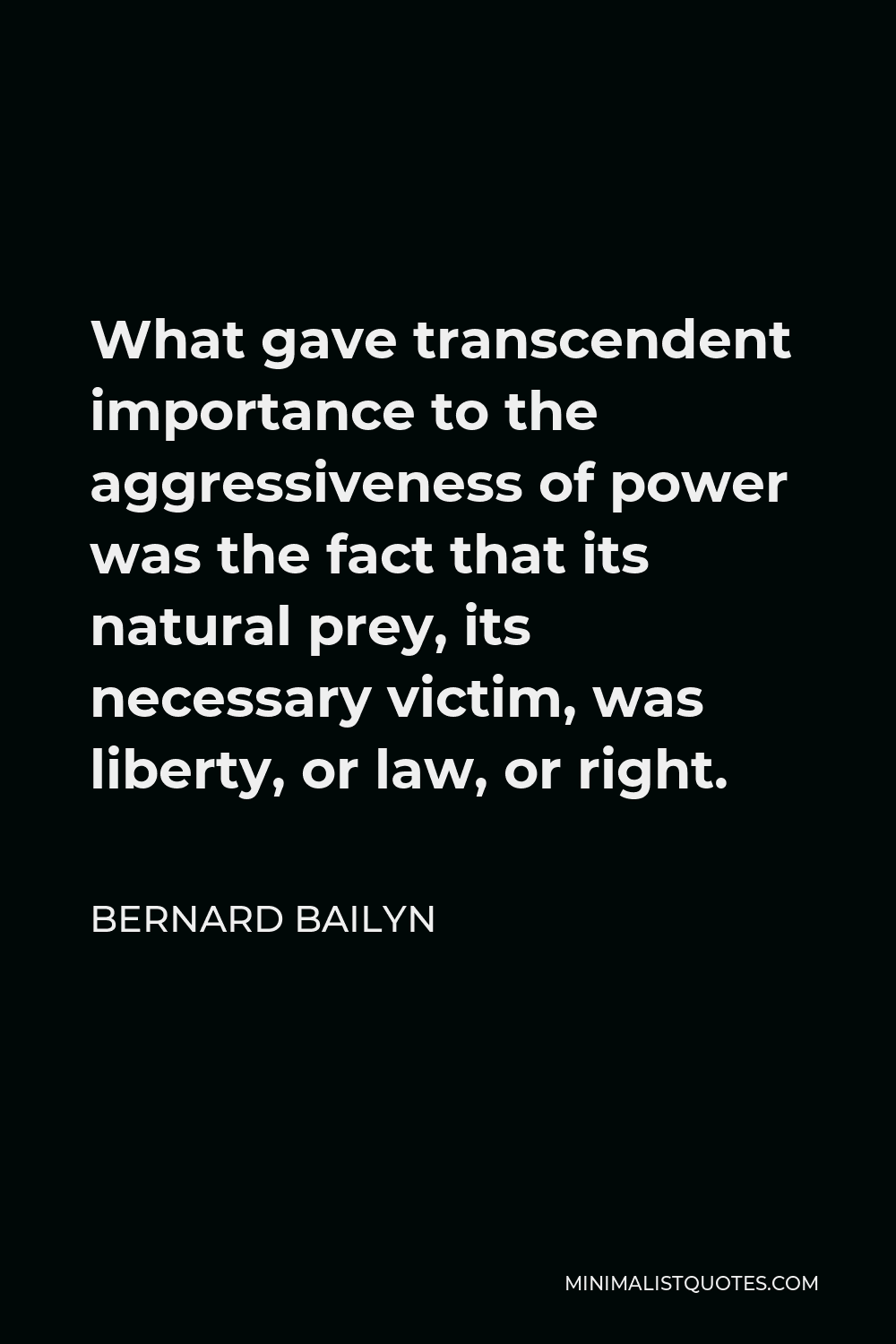
What gave transcendent importance to the aggressiveness of power was the fact that its natural prey, its necessary victim, was liberty, or law, or right.
BERNARD BAILYN -






Never had Parliament or the crown, or both together, operated in actuality as theory indicated sovereign powers should.
BERNARD BAILYN -





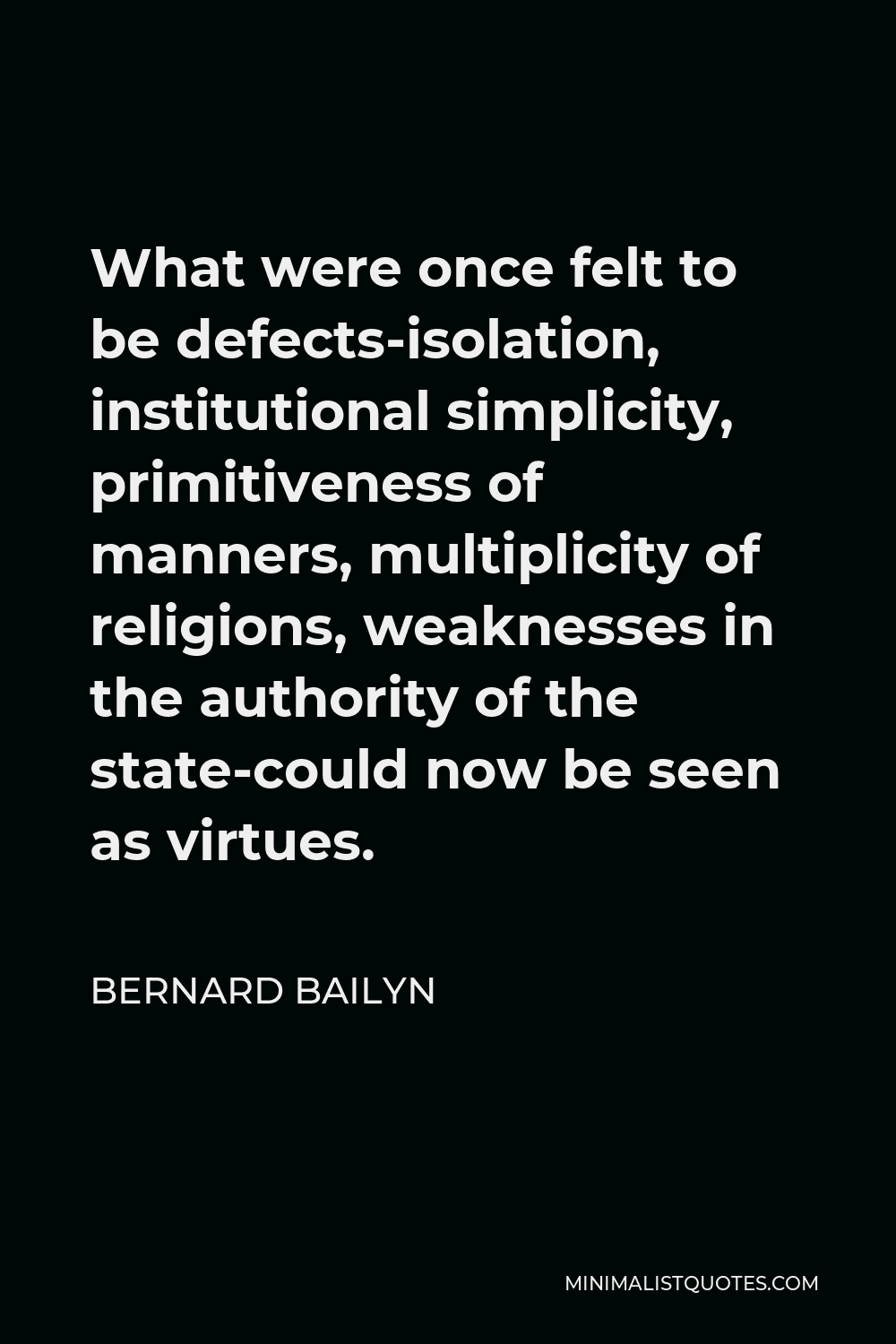
What were once felt to be defects-isolation, institutional simplicity, primitiveness of manners, multiplicity of religions, weaknesses in the authority of the state-could now be seen as virtues.
BERNARD BAILYN -





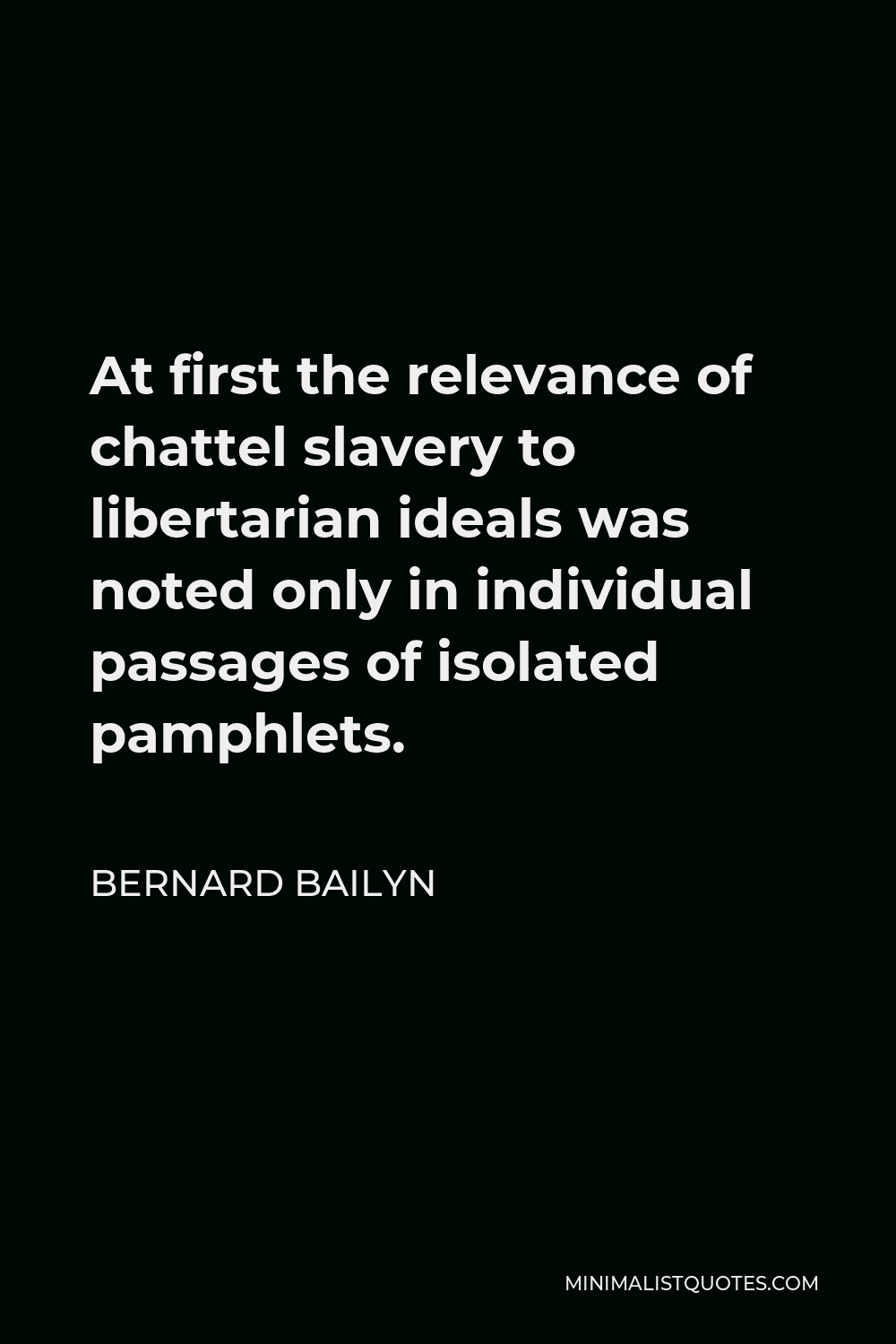
At first the relevance of chattel slavery to libertarian ideals was noted only in individual passages of isolated pamphlets.
BERNARD BAILYN -






The classics of the ancient world are everywhere in the literature of the Revolution, but thet are everywhere illustrative, not determinative, of thought
BERNARD BAILYN -






Instantly available without continuous presence is probably the best role a mother can play.
BERNARD BAILYN -





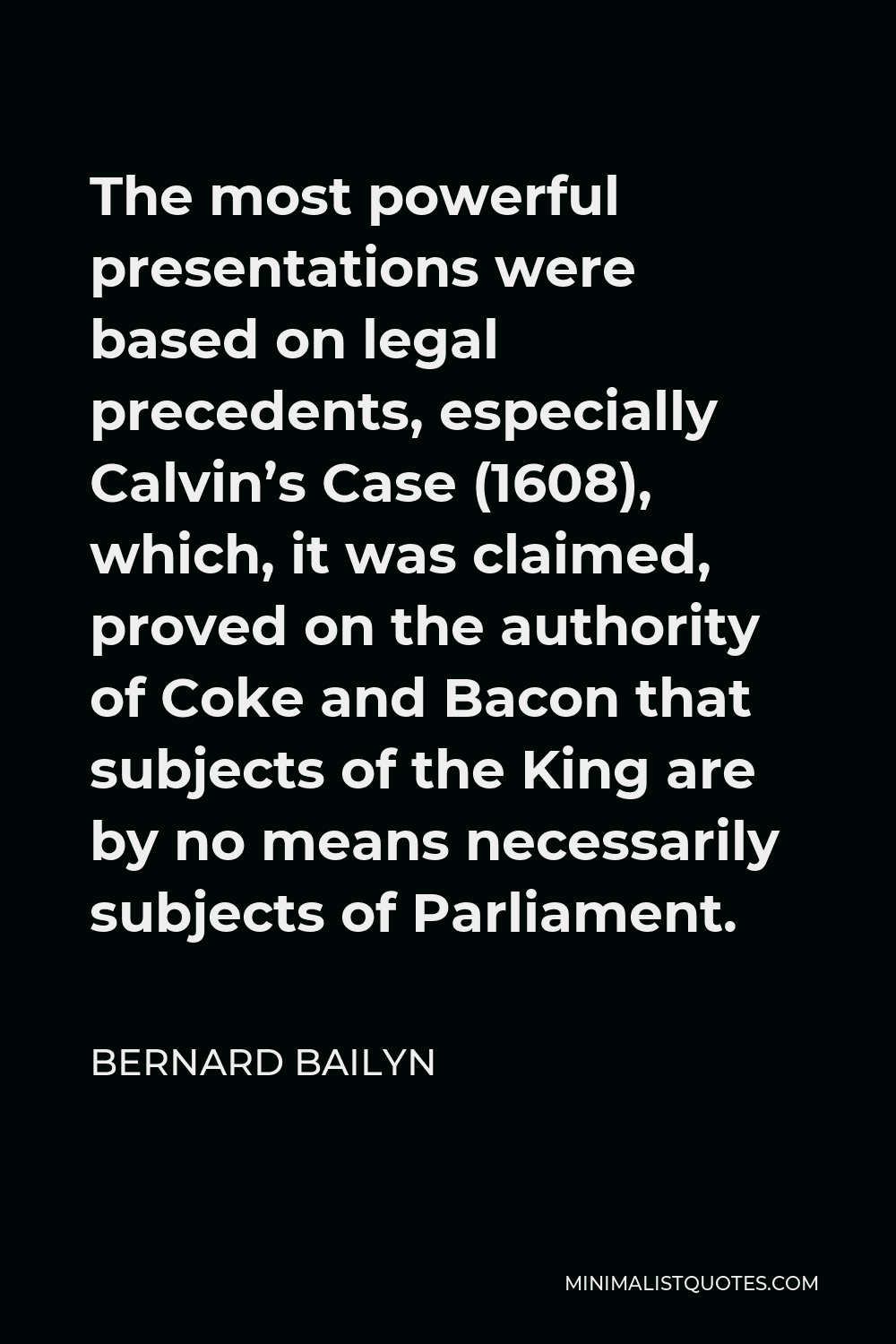
The most powerful presentations were based on legal precedents, especially Calvin’s Case (1608), which, it was claimed, proved on the authority of Coke and Bacon that subjects of the King are by no means necessarily subjects of Parliament.
BERNARD BAILYN -





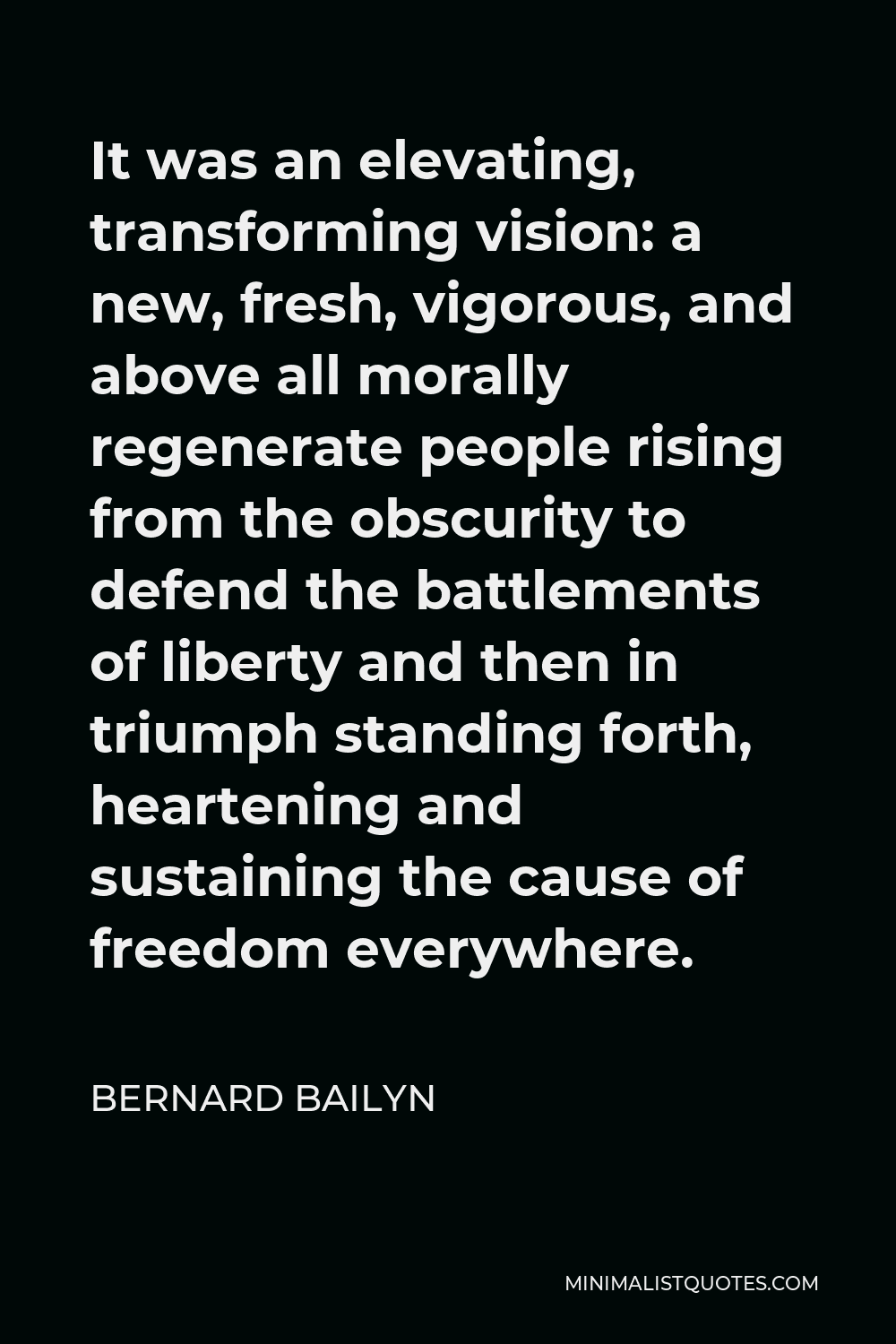
It was an elevating, transforming vision: a new, fresh, vigorous, and above all morally regenerate people rising from the obscurity to defend the battlements of liberty and then in triumph standing forth, heartening and sustaining the cause of freedom everywhere.
BERNARD BAILYN -





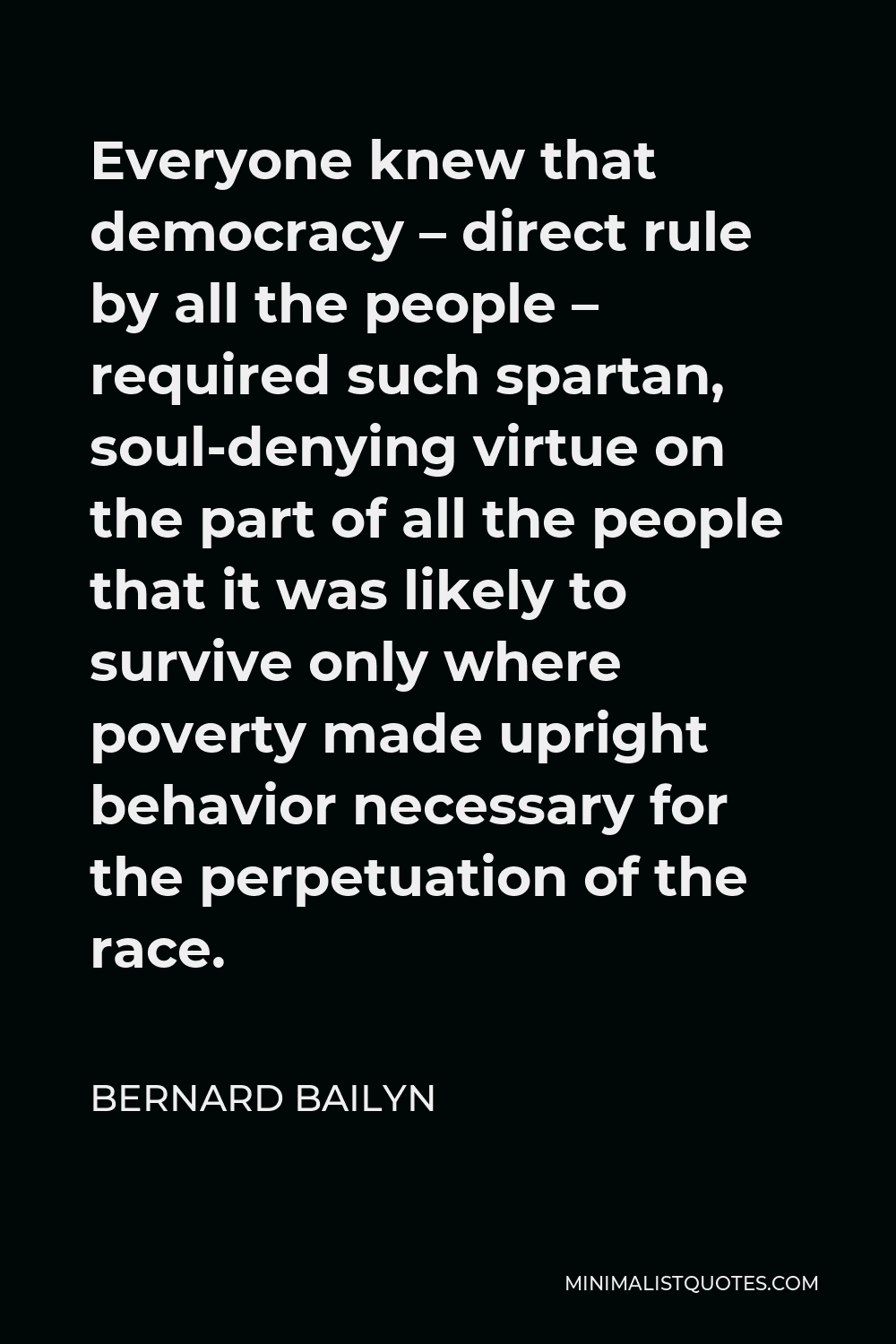
Everyone knew that democracy – direct rule by all the people – required such spartan, soul-denying virtue on the part of all the people that it was likely to survive only where poverty made upright behavior necessary for the perpetuation of the race.
BERNARD BAILYN







